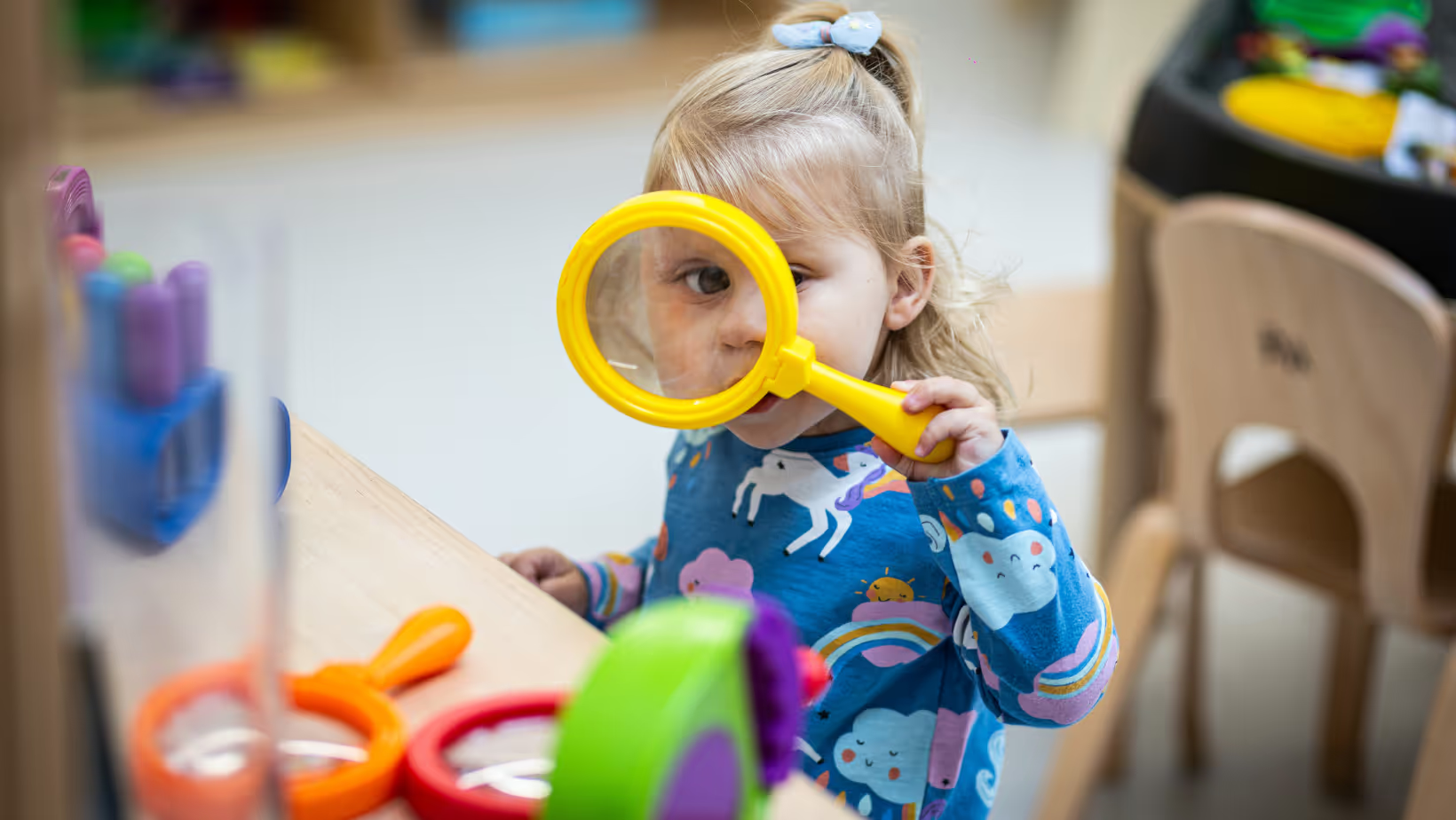Cognitive development in early childhood refers to the growth and progression of a child's thinking, reasoning, problem-solving, and memory skills during their early years. It plays a crucial role in shaping a child's overall development, influencing their academic success, social interactions, and future achievements.
- Understanding Cognitive Development
- Definition of Cognitive Development
- Key Components of Cognitive Development
- The Stages of Cognitive Development in Early Childhood
- Importance of Cognitive Development in Early Childhood
- Factors Influencing Cognitive Development
- How Parents and Educators Can Support Cognitive Development
- Conclusion
Understanding Cognitive Development
Cognitive development encompasses the processes through which children acquire knowledge and develop their cognitive abilities. It involves the brain's ability to process information, think, and reason. Understanding the various aspects of cognitive development can provide valuable insights into a child's learning and development journey.
At birth, the average baby’s brain is about a quarter of the size of the average adult brain. It then doubles in size within a child’s first year and keeps growing to approximately 80% of adult size by age 3 and 90% – nearly full grown – by age 5.
As children grow and interact with their environment, their cognitive abilities undergo significant changes. These changes are influenced by a combination of genetic factors, environmental stimuli, and social interactions. Cognitive development is not a linear process but rather a complex and dynamic journey that unfolds over time.

Definition of Cognitive Development
Cognitive development can be defined as the progressive and systematic development of a child's thinking ability, intellectual capabilities, and problem-solving skills. It involves the acquisition of knowledge, memory, attention, perception, language, and other cognitive processes that shape a child's understanding of the world around them.
Children's cognitive development is a multifaceted process that involves not only the acquisition of knowledge but also the ability to apply that knowledge in various contexts. It is a continuous process that extends from infancy through adolescence and into adulthood, laying the foundation for lifelong learning and intellectual growth.
Key Components of Cognitive Development
Cognitive development comprises several key components that work together to support a child's overall cognitive growth:
- Attention: The ability to concentrate on specific information and filter out distractions.
- Memory: The capacity to store and retrieve information from the past.
- Language Acquisition: The process of learning and understanding language.
- Executive Functioning: The skills necessary for planning, organising, and problem-solving.
- Perceptual Skills: The ability to interpret and make sense of sensory information.
These components of cognitive development are interconnected and interdependent, influencing each other as children navigate the complexities of learning and problem-solving. For example, attention plays a crucial role in memory formation, as focused attention helps encode information effectively for later retrieval. Similarly, language acquisition is not only a cognitive process but also a social one, shaped by interactions with caregivers, peers, and the broader community.
The Stages of Cognitive Development in Early Childhood
Jean Piaget, a renowned Swiss psychologist, proposed a theory of cognitive development that outlines several distinct stages that children typically progress through:
Sensorimotor Stage (Birth to 2 Years)
In this stage, infants learn about their environment through sensory exploration and their motor activities. They develop object permanence, the understanding that objects continue to exist even when they are out of sight. They also acquire the ability to imitate actions and solve simple problems.
Infants in the sensorimotor stage exhibit a range of fascinating behaviours as they interact with their surroundings. From the joyous discovery of their own hands to the curious exploration of different textures and sounds, every experience contributes to their cognitive development. As they reach milestones like crawling and walking, their understanding of cause and effect deepens, laying the foundation for more complex problem-solving skills in the future.
Preoperational Stage (2 to 7 Years)
During this stage, young children begin to develop symbolic thinking, language skills, and imaginative play. They can use symbols to represent objects or ideas. However, their thinking is still limited by egocentrism, centration, and the inability to grasp abstract concepts.
Children in the preoperational stage engage in vibrant pretend play scenarios that reflect their growing cognitive abilities. Whether they are pretending to be superheroes saving the day or hosting a tea party for their stuffed animals, these imaginative activities help them explore different roles and perspectives. Through language development, children in this stage also start to express their thoughts and emotions more clearly, expanding their ability to communicate with others and make sense of the world around them.

Importance of Cognitive Development in Early Childhood
Cognitive development in early childhood is of paramount importance due to its wide-ranging impact on a child's overall development:
Role in Academic Success
Strong cognitive skills lay the foundation for academic success. Children with well-developed cognitive abilities are better able to understand complex concepts, solve problems, think critically, and acquire new knowledge, supported by studies showing that cognitive ability had a significant positive effect on academic achievement. These skills provide them with a solid basis for learning and academic achievements throughout their education journey.
Influence on Social Interactions
Cognitive development also plays a significant role in a child's social interactions. As children develop cognitive abilities such as perspective-taking and theory of mind, they become better equipped to understand the thoughts, feelings, and intentions of others. This enhanced understanding facilitates effective communication, collaboration, and positive relationships with peers and adults.
Factors Influencing Cognitive Development
Multiple factors contribute to a child's cognitive development:
Environmental Factors
The environment in which a child grows and learns greatly influences their cognitive development. Enriched learning environments that provide ample opportunities for exploration, play, and intellectual stimulation can foster cognitive growth. On the other hand, adverse environments characterised by neglect, lack of educational resources, or exposure to toxins may hinder cognitive development.
Genetic Factors
Genetic factors also play a role in shaping a child's cognitive development. Genetic predispositions can influence a child's memory capacity, attention span, and cognitive abilities. However, it is important to note that environmental factors and experiences can either enhance or compensate for genetic predispositions.
How Parents and Educators Can Support Cognitive Development
Parents and educators play a crucial role in supporting and nurturing a child's cognitive development. Here are some ways they can facilitate cognitive growth:
Encouraging Exploration and Curiosity
Children learn best through hands-on experiences and exploration. Encouraging children to explore their surroundings, ask questions, and discover answers fosters their cognitive development. Providing opportunities for open-ended play, problem-solving activities, and exposure to new experiences stimulates their thinking and nurtures their natural curiosity.
Providing Stimulating Learning Environments
Creating stimulating learning environments both at home and in educational settings can enhance cognitive development. These environments should include a variety of age-appropriate materials, books, puzzles, and games that encourage critical thinking, problem-solving, and creativity. Additionally, engaging children in discussions, reading, and shared experiences can further promote cognitive growth.

Conclusion
In conclusion, cognitive development in early childhood encompasses the process through which children acquire and develop their thinking, reasoning, and problem-solving skills. Understanding the key components and stages of cognitive development can provide valuable insights into a child's learning journey and the importance of cognitive development lies in its impact on academic success and social interactions. It can also be said that both environmental and genetic factors shape cognitive development, with parents and educators playing a vital role in supporting and nurturing a child's cognitive growth.
At Fennies, we nurture cognitive development by creating stimulating environments and experiences that challenge children both physically and cognitively. Our approach begins with our highly trained staff, who have a deep understanding of child development. This expertise enables them to design activities and environments that ignite curiosity and encourage critical thinking.
For our youngest learners, the sensory experiences provided for our under-2s are paramount. These activities expose children to a variety of new sensations, encouraging them to explore and engage with their surroundings. This not only stimulates their senses but also supports the development of neural connections, essential for cognitive growth.
As children progress, our STEM program introduces them to fascinating concepts in science, technology, engineering, and mathematics. Staff members skillfully pose situations and questions that encourage children to think critically, ask questions, and solve problems. This hands-on approach helps children develop a love for learning and throughout each child’s journey, we ensure that the environments are designed to challenge and stimulate.
By providing these opportunities for physical and cognitive engagement, we support the development of synaptic connections in the brain, promoting overall cognitive development.
By encouraging exploration and providing stimulating learning environments, we can empower children to reach their full cognitive potential during their early years.
To find out more about Fennies, our nurseries and our ethos, click here.
FAQ
Subscribe to our newsletter
Stay up to date with Fennies news







.png)


